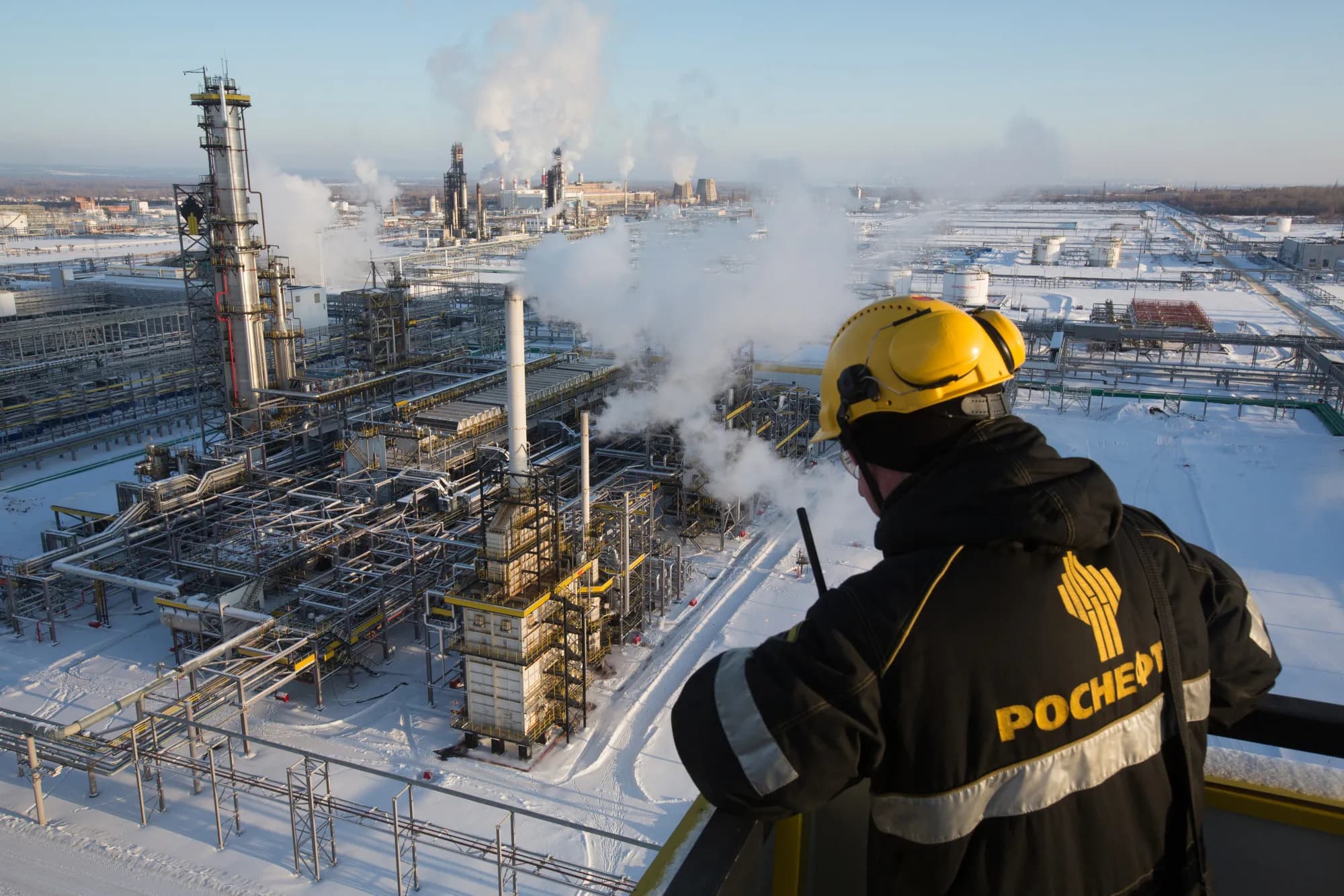We're loading the full news article for you. This includes the article content, images, author information, and related articles.
The United States has imposed sanctions on Russia's two largest oil companies, Rosneft and Lukoil, intensifying economic pressure on Moscow over its ongoing war in Ukraine.

The United States government, under the Trump administration, on Wednesday, October 22, 2025, announced sanctions against Russia's two largest oil companies, Rosneft and Lukoil. This action marks the first set of sanctions against Russia since President Donald Trump's return to the White House in January, and it aims to curtail key revenues that finance Russia's military operations in Ukraine.
US Treasury Secretary Scott Bessent, in a statement, urged an immediate ceasefire, citing President Vladimir Putin's "refusal to end this senseless war." Bessent indicated that the Treasury is prepared to take further action if necessary and encouraged allies to join in adhering to these sanctions.
The sanctions represent an escalation of pressure on the Kremlin to negotiate an end to the conflict. The move follows a period of shifting approaches by the Trump administration, which has expressed growing frustration with Russia's demands.
Notably, the British government had already sanctioned Rosneft and Lukoil last week. The European Union has sanctioned the state-owned Rosneft but not Lukoil, a privately owned entity, due to exemptions for member states like Hungary and Slovakia that rely on Russian oil.
Adding to the diplomatic strain, President Trump confirmed on Wednesday that he had cancelled a planned summit with President Putin, stating, "It didn't feel right to me."
The US sanctions target Rosneft and Lukoil, along with their subsidiaries, for operating in Russia's energy sector. These measures stipulate that foreign financial institutions conducting transactions involving Russia's military-industrial base risk being sanctioned, and engaging in transactions with sanctioned entities could lead to secondary sanctions.
Kenya's stance on the Russia-Ukraine war has evolved towards a more neutral and non-aligned position, as outlined in a newly approved foreign policy sessional paper in June 2025. This shift contrasts with Kenya's earlier vocal criticism of Russia's invasion, notably a strong rebuke delivered by then-UN Ambassador Martin Kimani in February 2022, which invoked Africa's colonial past to caution against territorial expansionism.
President William Ruto has reiterated Kenya's commitment to the UN Charter principles of national sovereignty and territorial integrity, advocating for dialogue as the path to peace. Despite this, Kenya aims to strengthen trade relations with Russia, with President Ruto deploring weak trade ties and announcing a potential trade pact during a visit by Russian Foreign Minister Sergei Lavrov in May 2025.
US Treasury Secretary Scott Bessent emphasized that the sanctions aim to degrade the Kremlin's ability to fund its war machine. Ukraine has welcomed the sanctions, viewing them as a significant step by Washington.
For Kenya, the implications of such sanctions are complex. While Kenya has expressed openness to purchasing Russian oil to potentially lower local fuel prices, such a move could put the country at odds with Western nations, particularly the US, which has threatened secondary sanctions on buyers of Russian oil.
The new US sanctions could disrupt global oil markets, potentially leading to price spikes and supply shortages. For Kenya, which imports a significant portion of its refined petroleum, such disruptions could exacerbate existing economic pressures, including increased transport and production costs, and higher inflation.
Kenya's energy security is a critical concern. While the country is making strides towards 100% clean energy by integrating sources like geothermal, hydro, wind, solar, and even nuclear power, petroleum remains a vital component of its energy mix. Diversifying import sources for essential commodities like wheat and fertilisers, traditionally sourced from Russia and Ukraine, remains crucial for Kenya.
The full extent of the impact of these latest sanctions on global oil prices and supply chains remains to be seen. It is also uncertain how Kenya will navigate its desire to strengthen trade with Russia while avoiding potential secondary sanctions from the US. The effectiveness of these sanctions in compelling Russia to end the war in Ukraine is also a subject of ongoing debate.
Observers will be closely watching for any further actions by the US and its allies regarding sanctions, as well as Russia's response. The impact on global oil prices and the strategies adopted by countries like Kenya to secure their energy and commodity needs will be key developments. The ongoing diplomatic efforts to achieve a ceasefire in Ukraine will also remain a central focus.
Keep the conversation in one place—threads here stay linked to the story and in the forums.
Sign in to start a discussion
Start a conversation about this story and keep it linked here.
Other hot threads
E-sports and Gaming Community in Kenya
Active 9 months ago
The Role of Technology in Modern Agriculture (AgriTech)
Active 9 months ago
Popular Recreational Activities Across Counties
Active 9 months ago
Investing in Youth Sports Development Programs
Active 9 months ago